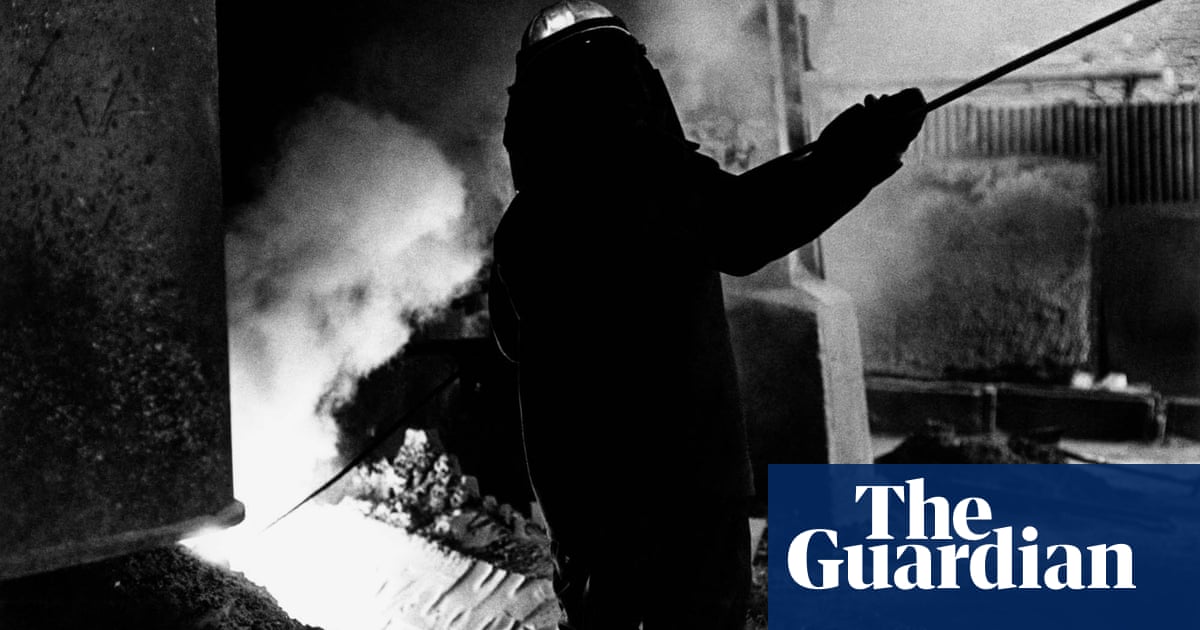
In Mark Blake’s excellent forthcoming book about the history of Fleetwood Mac, Dreams, there is a great quote from Mick Fleetwood. Their co-founder is looking back at the band’s history and bluntly summarising the almost perpetual state of turmoil in which it seems to have found itself. “This band,” he notes, “is a cauldron of shit.”
It’s a close-run thing, but the period in Fleetwood Mac’s history when the cauldron bubbled most violently may be the one that stretches from the departure of the original frontman, Peter Green, in mid-1970 to the arrival of Stevie Nicks and Lindsey Buckingham – and with it superstardom – in 1975.
For fans of Fleetwood Mac: The Soap Opera, it’s got the lot: wild overindulgence; catastrophic breakdowns; the loss of a member to an unsavoury religious cult; a manager who put a “fake” version of the band featuring none of its real members on tour in the US; and precisely the kind of intra-band romantic intrigue for which the Buckingham-Nicks version of Fleetwood Mac became notorious.
What it doesn’t have is the musical reputation of the eras that preceded and succeeded it. There are people who will tell you that the original Fleetwood Mac were the greatest British blues band of all time and that everything went irrevocably downhill after Green left, while the sales figures of Rumours and Tango in the Night speak for themselves. But, in between, Fleetwood Mac’s early 70s albums – Kiln House, Future Games, Bare Trees, Penguin, Mystery to Me and Heroes Are Hard to Find – remain their least-known work, despite the best efforts of the band’s members.
The late Christine McVie was a staunch defender of 1973’s Mystery to Me (“my third-favourite Fleetwood Mac album”), while Fleetwood has overseen a succession of reissues – including a new compilation, The Best of 1969-74, which throws in a handful of singles from the dying days of the Green years – and regularly lobbied for songs from that era to be included in the latterday band’s live sets.
But to little avail. As Blake notes, the appearance of 1971’s Tell Me All the Things You Do in the set list of their 2018 tour was the signal for audiences to head to the bar. “That’s the trouble,” complained Fleetwood. “People forget there was another Fleetwood Mac after Peter, but before Lindsey and Stevie.”
That seems unfair. The early 70s Fleetwood Mac albums are certainly uneven, the sound of various members pulling the band in different musical directions, but you could argue it was ever thus. Green-era Fleetwood Mac released the almost unbearably sad 1969 single Man of the World backed with a rock’n’roll pastiche called Somebody’s Gonna Get Their Head Kicked in Tonight; what is 1979’s Tusk if not a miscellany of contrasting ideas? And there are some genuinely amazing songs from the early-70s period, which deserve far better than to be thought of as interstitial filler. So, here is a list – and an accompanying Spotify playlist – of 15 Mac (and one Mac-related) moments from those years.
Station Man (1970)
Fleetwood Mac’s first post-Green album, Kiln House, was a weed-fuelled attempt to, in the parlance of the time, “get it together in the country”. It’s also a mess of cover versions and 50s homages, with scattered highlights, among them the hard-rocking Station Man – such a favourite of the Who’s Pete Townshend that he borrowed the riff for Won’t Get Fooled Again.
Tell Me All the Things You Do (1970)
Fleetwood is fond of hypothesising that, had Peter Green not left, Fleetwood Mac might have become a hard-rocking band huge in the US, along the lines of Led Zeppelin. Danny Kirwan’s Tell Me All the Things You Do packs enough muscular riffs into four minutes to suggest that is a far from ludicrous suggestion.
Peter Green – Heavy Heart (1970)
Peter Green’s 1970 solo debut The End of the Game was an instrumental collection of funk rhythms, free improvisation and eerie ambient atmospheres. It’s hard not to think that, had it been made by an experimental German band of the era rather than Britain’s most celebrated blues guitarist, it would be more regularly acclaimed as an avant-rock masterpiece. Either way, it spawned what may be the most understated Top of the Pops appearance in the show’s history.
Dragonfly (1971)
The great lost early 70s Fleetwood Mac single – obscure enough to have thus far evaded Spotify – and the first to feature McVie, Dragonfly is part languid Albatross-y soundscape and part gorgeous Crosby, Stills and Nash harmonies. But there is something else lurking at its edges: an eeriness, a faint sense of ominous darkness at odds with its beatific, bucolic mood.
Future Games (1971)
The soundtrack to the 2000 movie Almost Famous helped to turn Elton John’s Tiny Dancer from a 1971 album track into one of his most celebrated songs – and to spark a broader critical rehabilitation. No such luck for Future Games, which also appeared in the film. A pity: its stoned, shimmering, melancholy fabulousness is ripe for rediscovery.
Show Me a Smile (1971)
The minute she became a member of Fleetwood Mac, McVie became the band’s secret weapon, her songs invariably highlights on whichever albums they featured. Show Me a Smile was the first evidence, somewhere between British folk-rock and country; utterly lovely.
Bob Welch – Sentimental Lady (1972)
Bob Welch enjoyed a curious career after Fleetwood Mac. A brief burst of yacht-rock-adjacent late 70s success – often abetted by members of Rumours-era Fleetwood Mac – was followed by a slide into drug addiction that involved partying with the nascent Guns N’ Roses. His solo fame was founded on a re-recording of the ultra-hooky Sentimental Lady, which probably should have been a pop hit the first time around.
Spare Me a Little of Your Love (1972)
On which McVie invented the sound that would make Fleetwood Mac one of the biggest bands in the world three years later. With a touch more production polish, Spare Me a Little of Your Love could easily slip into Rumours.
Danny’s Chant (1972)
On the one hand, you could claim the largely instrumental Danny’s Chant as precisely the kind of filler with which Fleetwood Mac made weight on their early 70s albums. On the other, its ferociously distorted wah guitars, spectral wordless vocals and rumbling drums are probably only a snappy edit away from appearing in the middle of a Balearic DJ set.
Remember Me (1973)
Few albums illustrate the chaos and confusion of early 70s Fleetwood Mac quite like Penguin, which throws every idea imaginable at the wall in the hope that one will stick: R&B covers, steel drums, astringent Neil-Young-ish country-rock, the brief return of Green on Night Watch. On the opener, Remember Me, McVie doggedly points the way forward, with another richly melodic proto-Rumours track.
Hypnotized (1973)
Welch’s weirdest contribution to Fleetwood Mac was his unquenchable desire to get at least one song about UFOs on to every album. Hypnotized was the moment when his paranormal inclinations collided with musical gold: a gently entrancing haze of electric piano, guitar and ethereal harmonies over an insistent Fleetwood beat. It would have been a hit, had the band not relegated it to a B-side.
Keep on Going (1973)
A potential path not travelled, Keep on Going is the sound of Fleetwood Mac taking note of the music emerging from Philadelphia’s Sigma Sound Studios in 1973. McVie’s vocal floats over funky and beautifully orchestrated proto-disco and there is a great acoustic guitar solo. The lyrics hint at romantic turmoil: McVie was having an affair with the album’s engineer.
Coming Home (1974)
Welch quit after Heroes Are Hard to Find, dispirited by the band’s lack of commercial progress, but his parting shot included Coming Home, a final blast of echoing, drugged-out weirdness that sounds appealingly like Los Angeles soft rock viewed through a psychedelic prism.
Bad Loser (1974)
One of Fleetwood Mac’s special skills became alchemising the potentially ruinous turmoil that surrounded the band into musical gold. Again, McVie got there first: Bad Loser launches itself at the manager who sent a “fake” version of Fleetwood Mac on a US tour, setting its bitterness to dreamy music over urgent drums.
Come a Little Bit Closer (1974)
The latest in McVie’s dogged attempts to signpost Fleetwood Mac’s musical future. If there is such a thing as a subtle power ballad, Come a Little Bit Closer is one, its anthemic chorus smoothed by the softness of McVie’s voice and some beautifully understated orchestration. Yet again: could have been on Fleetwood Mac or Rumours.
Best of Fleetwood Mac (1969-1974) is on 26 July on Rhino on CD and double LP












